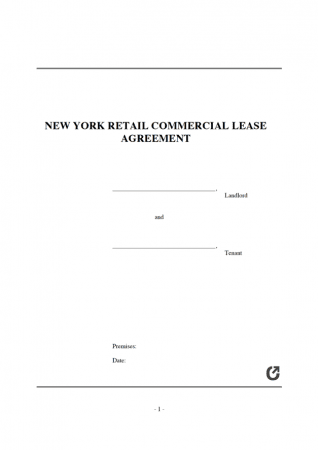
The New York Rental Lease Agreements allow landlords to rent commercial and residential properties to accepted tenants. Signed by a lessor (manager or owner) and lessee(s), the documents commit renters to making consistent payments in exchange for being granted the right to live (or work) in the property.
Compared to other states, NY has relatively fewer mandatory conditions to follow. Because of this, landlords should ensure they are covered by adding anything unique to their leasing situation as a condition in a lease.

Commercial Lease Agreement – A form used to lease commercial property to a business owner planning on running their retail, industrial, office, or food-related company out of it.
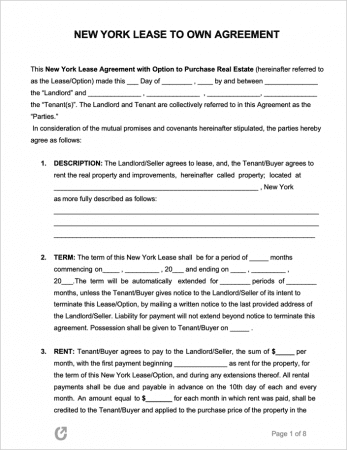
Lease to Own Agreement – A cross between a standard lease and a purchase agreement. Sets a purchase price for the rental property that tenant(s) can choose to act on at the end of the lease.
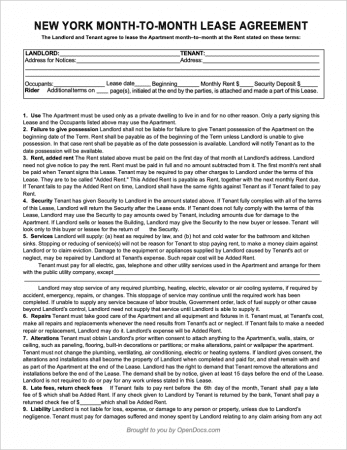
Month-to-Month Lease Agreement – A flexible option to one (1) year leases that allows either the renters or the landlord to cancel the agreement with a written notice sent thirty (30) days in advance.
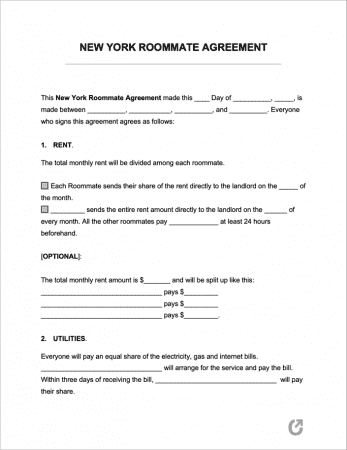
Roommate Agreement – Consists of both legally-binding and non-legally binding terms that establish how roommates in a shared rental agree to handle certain living topics.
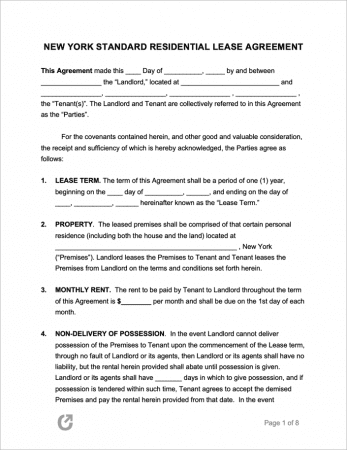
Standard Residential Lease Agreement – Establishes a binding contract of one (1) year in length. The most commonly used type of lease form.
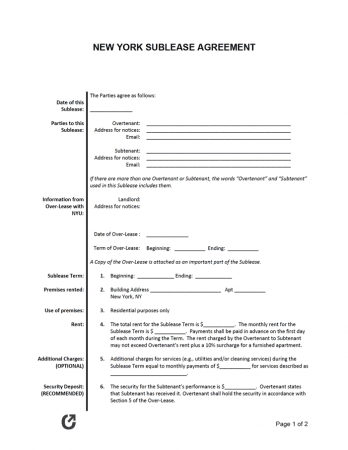
Sublease Agreement – Used for tenants that need to move out of their rental (for the short or long term), but do not want to make payments for an apartment or room going unused. Permission from the landlord should be received.
Disclosure 1 – Bedbug Infestation History
Disclosure 2 – Sprinkler Disclosure Rider
Disclosure 3 – Window Guards
Disclosure 4 – Housing Discrimination
Disclosure 5 – Landlord & Tenant
Landlord-Tenant Guides / Resources
Emergency: There is no applicable state statute pertaining to a landlord’s access to a rental unit in emergency situations. However, federal law gives landlords the right to enter in any circumstance considered to be an emergency.
Non-Emergency: No relevant statute; NY state law also does not specifically deny or grant a landlord’s access to a rental property in non-emergency situations.
Maximum (576/74 §6): One (1) months’ rent.
Returning to Tenant (§ 7-108(e)): Landlords are required by law to return deposits within fourteen (14) days after the termination of the rental agreement.
Receipt (§ 7-103): Landlords who deposit a tenant’s security deposit in a bank must notify the tenant in writing the name and address of the banking organization as well as the amount of the deposit.
Deposit Interest (§ 7-103(2-a)): Landlords that own/manage six (6) or more family dwelling units are required to collect and return accrued interest to tenants. The deposit must be kept within a NY-based interest-bearing bank account.
Uses of the Deposit: Deposits can be deducted for two (2) reasons: